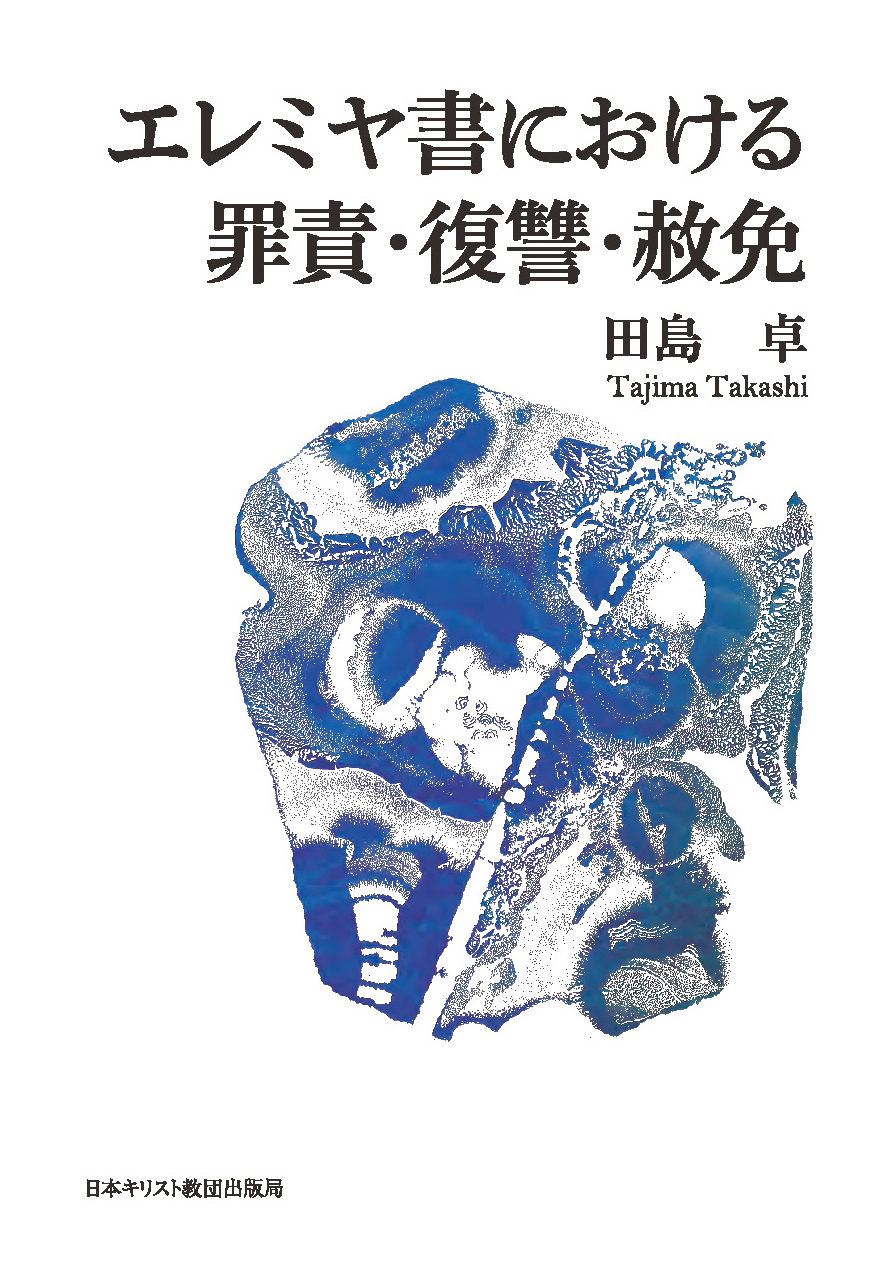
Title
Jeremiah-Sho ni Okeru Zaiseki, Fukushū, Shamen (Guilt, Vengeance, and Forgiveness in the Book of Jeremiah)
Size
328 pages, A5 format
Language
Japanese
Released
April 01, 2018
ISBN
9784818410015
Published by
The Board of Publications The United Church of Christ in Japan
Book Info
See Book Availability at Library
Japanese Page
The 21st century started with terrorism representing what seemed like religious war. Perhaps there are those who think that it is possible to avoid such conflicts if ethics or reason is given priority over religious zeal. However, this way of thinking does not get very far. It is because religion gives people support through their lives that it sometimes leads to acts in which people risk their lives. Quite apart from having or not having religious faith, if one does not confront and question some kind of “transcendence” or “irrationality,” then one misses an area of important issues in the world that people inhabit.
Moreover, the religious aspect remains even in areas that seem to have been fully modernized and rationalized, and there are things that cannot be resolved without it. In the area of international politics, for example, procedures such as repentance, confession, and forgiveness are often required in the process of reconciliation between conflicting countries, and these procedures resemble the Christian program for forgiveness. There is also what should be called the “doctrine of retribution” in this area, and a consideration of religion is inevitable if one is to consider such concepts.
How, then, should one treat religious aspects in the consideration of ethics? In this book the “Bible Studies” approach is used to this end.
Incidentally, are you familiar with the academic field of Bible Studies? It may seem that because the Bible is associated with religious studies or Christianity, and that you have to be a Christian to participate. However, “Bible Studies” is an academic field established in the modern era, relatively recently when compared to “Theology”—which developed from an early stage of Christian history as an area of scholarship within Christianity. Bible Studies began from an investigation into when, where, and by whom the texts of the Old Testament and the New Testament were written, and how they have been transmitted and edited so that they came to exist in the form we have now. In other words, because treating the Bible, which was the “word of God,” as also being “the word of man” requires analytical work, scholarship in the humanities is required, including not only a deep understanding of religious phenomena, but also archeology, sociology, and political science.
In addition to treating the Bible, which forms the basis of Judaism, Christianity and Islam, using the methods of Bible Studies—with its abundance of accumulated scholarship—makes it easier to connect religious texts to ethics. On that basis, this book has focused on the concept of “repentance” in the Book of Jeremiah in the Old Testament. “Repentance” is an important concept in both religion and ethics, and the Book of Jeremiah is one of the oldest texts in the philosophical history of this concept. This book shows that in the Book of Jeremiah there is already a perspective transcending the chain of vengeance based on the “doctrine of retribution.”
(Written by: TAJIMA Takashi / January 26, 2021)
Related Info
Awards:
2018 Watsuji Prize (The Japanese Society for Ethics)
http://jse.trustyweb.jp/2007/02/post_24.html
2017 ICU Society for Philosophical Studies Encouragement Award
http://subsites.icu.ac.jp/org/philos/activity.htm



